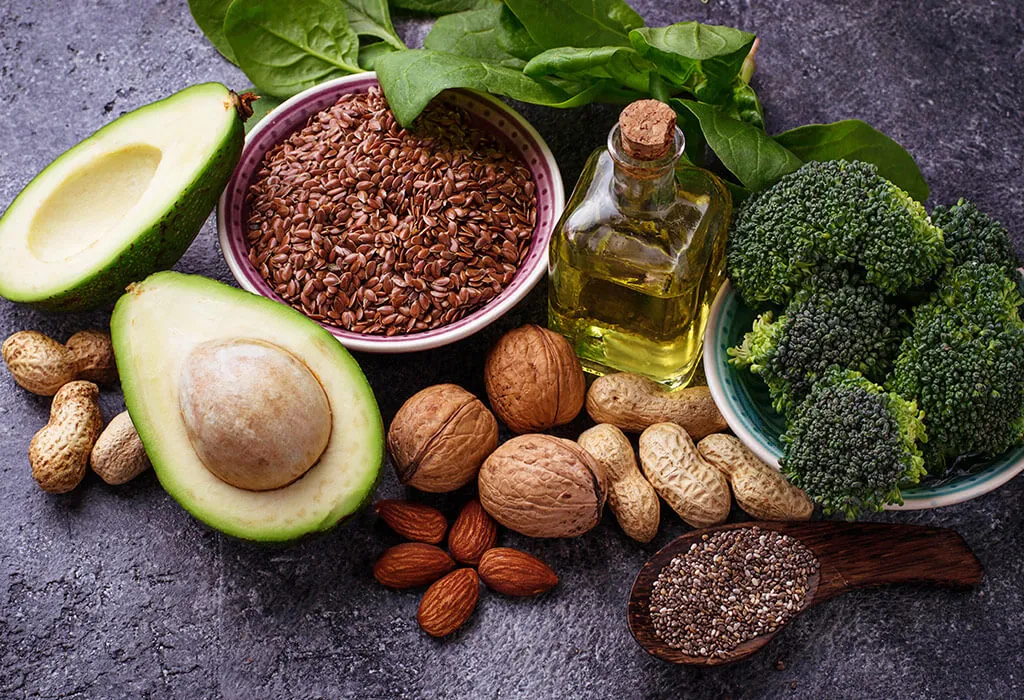Doctors recommend the daily intake of essential omega-3 fatty acids during pregnancy. These polyunsaturated fatty acids are crucial for the cognitive and visual development of the fetus.
Omega-3 fatty acids are polyunsaturated fatty acids that help within the development and maintenance of the vital body parts. These aren’t synthesized by the physical body and must be consumed from an outdoor source.
Importance of Omega-3 fatty acids
Of the Omega-3s, the foremost important ones are DHA (docosahexaenoic acid) and EPA (eicosapentaenoic acid). Both usually occur also as work together within the body, but each has its unique advantages. While DHA aids the right development of the brain, eyes and central systema nervosum , EPA supports system , heart and inflammatory response.
Omega-3s also are beneficial in maintaining the balanced production of prostaglandins that regulate different physiological functions like vital sign , nerve transmission, blood coagulation , allergic responses, production of hormones and proper functioning of the kidneys and alimentary canal .
Omega 3 benefits during Pregnancy
Omega-3 fatty acids are essential for the neurological development of fetuses. During early pregnancy, the fetus needs DHA and EPA as epa dha benefits the brain and visual development. Even within the early years after birth, the brain of an infant accumulates great deal of DHA, and compared to remainder of the body, has extremely high levels of DHA.
Pregnant women often end up with low of omega-3 because the body generates it to create the fetus’ systema nervosum . Therefore, doctors recommend a daily supplement for expecting mothers. Even after delivery, women must consume omega-3s as they’re beneficial in producing breast milk also .
With each pregnancy, the amount of omega-3s reduces within the mother’s body. To take care of the balanced cognitive development of the baby, women should add EPA and DHA to their regular diet during each pregnancy.
Other than neurological development, omega-3s also are known to scale back the likelihood of pre-term labour and delivery. It lowers the danger of pre-eclampsia and reduce the danger of postpartum mood swings that worsen with every subsequent pregnancy.
Best Sources of Omega-3 fatty acids during Pregnancy
Cold water fish are the simplest source of EPA and DHA. Doctors recommend salmon, rainbow trout, anchovies, herring and sardines, as levels of mercury are low in these. However, one shouldn’t consume quite 5 ounces of salmon, 16 sardines or 14 ounces of rainbow trout hebdomadally during pregnancy.
Unlike the belief, flaxseed isn’t the proper omega-3 that’s required during pregnancy. Flaxseed may be a source of omega-3 carboxylic acid called ALA (alpha-linolenic acid) which isn’t as important as EPA and DHA. As compared to EPA and DHA, ALA features a shorter-chain omega-3. Earlier there was a belief that the body converts ALA to EPA and DHA, but further studies proved otherwise.
Some manufacturers derive omega-3 supplements from algae, making them an ideal solution for vegetarians. lately milk, soy, eggs, cereals, breads, juices and yogurt are fortified with omega-3s. a number of them don’t contain large amounts of DHA or EPA, but even small amounts from different sources can add up. you ought to check the labels for a minimum of 50 milligrams of DHA per serving in each product.
Quality of animal oil Matters
Fish oil taken during pregnancy should be of excellent quality. most girls prefer eating cannon fodder , but which will increase the quantity of mercury in their bodies. Manufacturers of animal oil supplements process the animal oil to refine it and take away traces of mercury from it. So, it’s better to satisfy the omega-3 requirement by consuming supplements.
In a nutshell, it’s vital for the mom to follow the nutritional guidelines for pregnancy diligently. a touch slip or negligence could end in setbacks for the fetus in terms of developmental parameters, which is that the last item a mom would want.
Visit our Dietetics department for more details.

